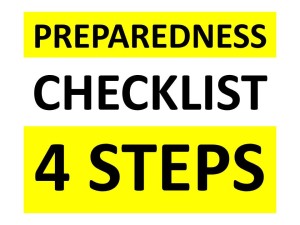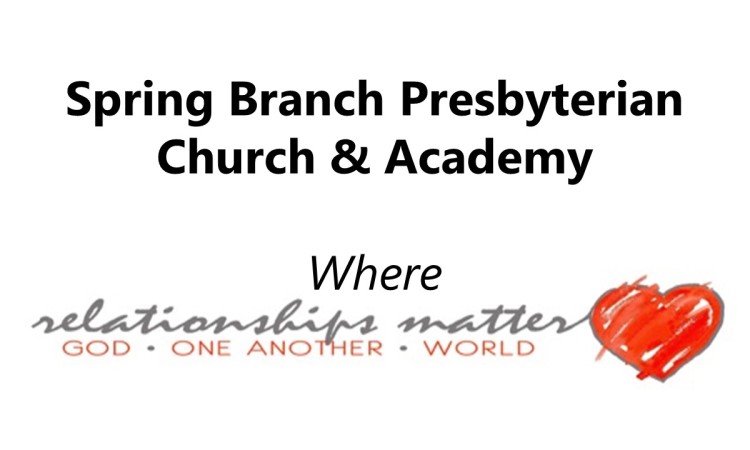Second Step of Preparedness Checklist
 During the month of September, the Missions Team would like to share some tips and resources from the City of Houston, the Harris County Homeland Security & Emergency Management, and Presbyterian Disaster Assistance (PDA) to assist you in being prepared for the next disaster. Each week of September we will include information about the steps you should be taking in case of a disaster.
During the month of September, the Missions Team would like to share some tips and resources from the City of Houston, the Harris County Homeland Security & Emergency Management, and Presbyterian Disaster Assistance (PDA) to assist you in being prepared for the next disaster. Each week of September we will include information about the steps you should be taking in case of a disaster.
There are 4 steps you can take to better enable your family’s safety in case of an emergency. The second is:
BUILD AN EMERGENCY ESSENTIALS KIT
Building a family emergency kit is crucial. During emergencies, you may need to be on your own for a period of time. You may want to consider three types of kits: A Go-Bag, a Shelter-in-Place Kit, and a Pet Disaster Supply Kit.
Go-Bag
A Go-Bag is one that you would take with you in case of an evacuation. Go-Bags should be easily portable like a backpack or suitcase on wheels. Store it somewhere you can easily get to it.
Recommended items to consider including:
- Copies of your important papers in a waterproof bag, such as insurance policies and cards, birth certificates, passports, bank account records, Medicare, medical insurance, prescription cards, medical providers information
- Extra set of car and house keys
- Cash, credit card, checkbook and ATM card
- External mobile phone battery pack or solar charger
- Bottled water and snacks such as energy or granola bars
- First-aid supplies, flashlight, and whistle
- Battery-powered or hand-crank radio (with extra batteries, if needed)
- A list of medications for each member of family and at least a 14-day supply of each medication
- Toothpaste, toothbrushes, wet cleansing wipes, and other items needed for personal sanitation
- Contact and meeting place information for your family and a map of your local area
- Games, books, puzzles, stuffed animal or toy to help occupy your child
- Rain ponchos
- Escape Tool for your car
- Specialized items such as hearing aids and batteries, extra wheelchair batteries, oxygen tanks, syringes, catheters
Shelter-in-Place Kit
Keep a Shelter-in-Place Kit for when you need to shelter at home for an extended period.
Recommended items to consider including:
- Water (one gallon per person per day, for drinking and sanitation – up to a 7-day supply)
- Non-perishable food (up to a 7-day supply per person)
- Battery-powered radio (with extra batteries) or hand-crank radio / NOAA radio
- Weather radio with tone alert and extra batteries
- Flashlight and extra batteries
- First-aid supplies
- Whistle to signal for help
- Filter mask or cotton t-shirt, to help filter the air
- Moist towelettes, garbage bags, soap, disinfectant, and plastic ties for personal sanitation
- Wrench or pliers to turn off utilities (water and electric)
- Manual can opener if your kit contains canned food
- Plastic sheeting and duct tape to shelter-in-place
- Plastic tarps for emergency roof repair
- Items for unique family needs, such as daily prescription medications, infant formula, or diapers
- Mess kits, paper cups, plates, and plastic utensils
- Cash and change (ATMs may not be available after an emergency, especially if power goes out)
- Paper towels
- Fire extinguisher
- Matches in a waterproof container
- Rain gear, sturdy shoes, long pants, and gloves
- Important family documents such as copies of insurance policies, identification, birth certificates, passports, and bank account records in a waterproof, portable container
- Games, books, puzzles, stuffed animal or toy to help occupy your child
Pet Disaster Supply Kit
Overlooking pets during a disaster can result in them being lost, injured or worse. Ensure your pet has proper identification and consider having them micro-chipped. This will make it much easier to reunite them with you if you are separated during an emergency. If a family is going to evacuate, the family’s pet should be evacuated, too. You should identify ahead of time a place you can evacuate with your pet. Consider boarding facilities or veterinarians in Houston or your designated evacuation location who shelter pets during emergencies. Also, designate a pet buddy, a friend or neighbor that can take care of your pet if you are unable to get to your house. As part of your pet plan, have a Pet Disaster Supply Kit.
Recommended items to consider including:
- Pet medications
- Important documents, including vaccination records
- Pet-friendly soap
- Pet first-aid supplies
- Strong leashes and collar/harness with ID tags
- Carriers to transport pets safely
- Current photo of pets (in case pets get lost)
- 7-day supply of non-perishable pet food and water (one gallon per pet per day)
- Bowls
- Cat litter and box
- Muzzle
- Manual can opener
- Pet bed and toys
Emergency Contact Numbers
- Fire, Police, EMS callers – 911
- General Questions and Assistance when you don’t know who to call – 211
- City of Houston Helpline – 311
- American Red Cross – 713-526-8300 or 866-526-8300
- FEMA – 1-800-621-3362
- National Weather Service – 281-337-5074
- Crime Stoppers – 713-222-TIPS (8477)
- Motorist Assistance Program – 713-CALL-MAP (713-225-5627
- From your mobile device, go to: http://readydl.com/ready-harris to download The ReadyHarris Preparedness App. Some of the features include:
- Five-step family emergency plan creation wizard
- Important News and timely alerts from your county
- Live information on evacuation routes and shelters
- One-button status sharing
- Library of emergency preparedness eGuides















